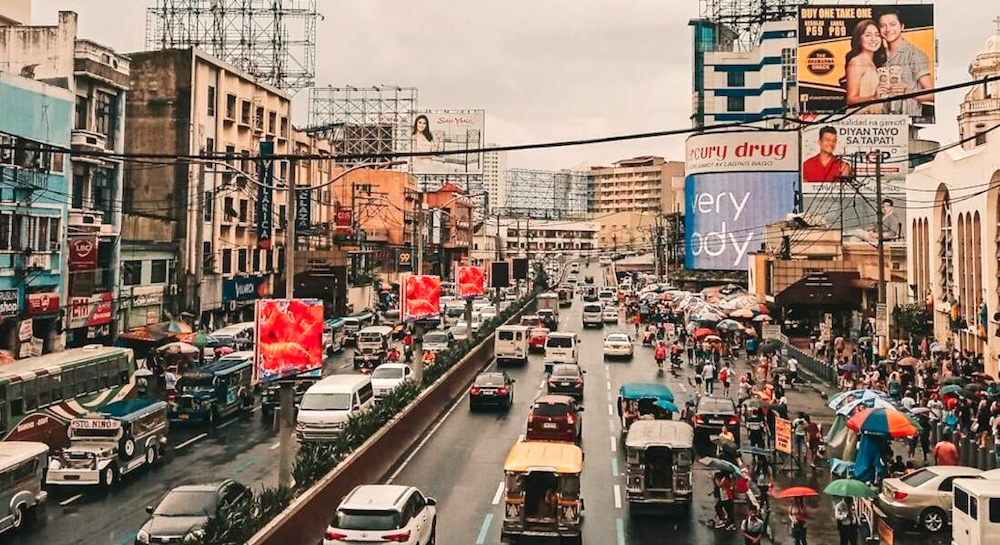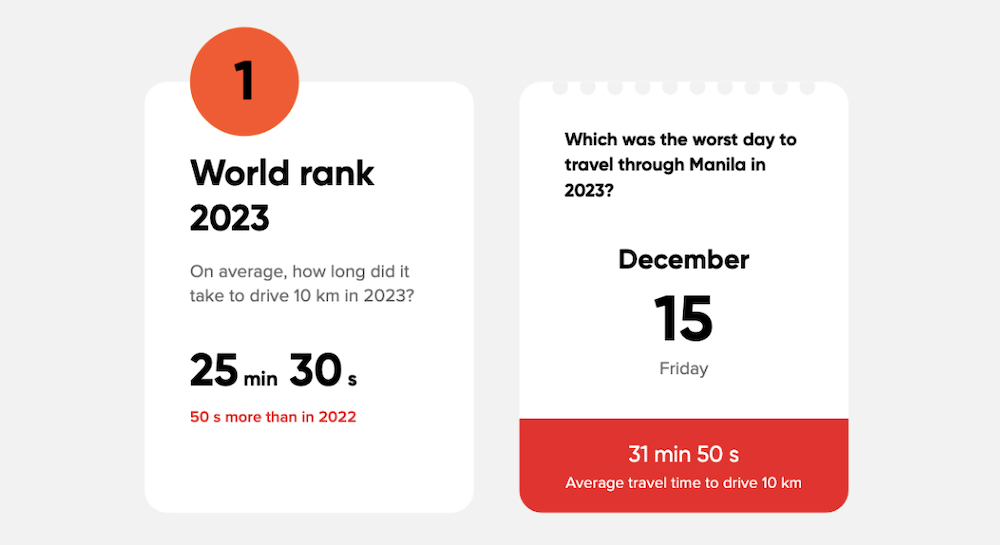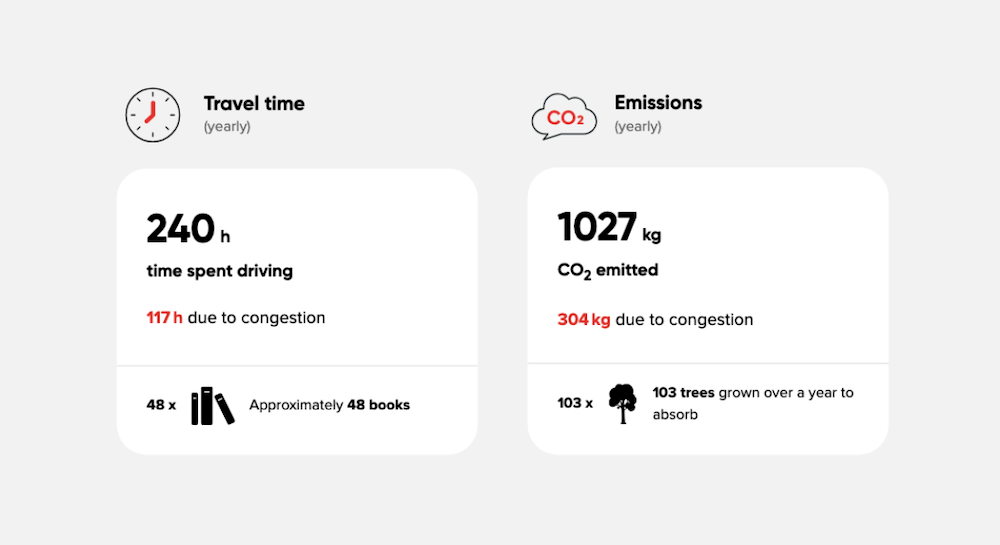Manila currently holds the ‘world’s worst traffic in metro area’ title

Manila has the world’s worst traffic congestion among metro areas | Photo by Marfil Graganza Aquino/Pexels
Admit it or not, the Philippines seldom tops any global ranking—may it be a worldwide student assessment or a powerful passports list. Filipinos seem to be so used to seeing other countries take the spotlight that when we do snag a high rank, skepticism becomes our default reaction. (“Really? Is this source credible? I don’t think so.”)
This time, though, Metro Manila has clinched a top spot, and it’s something that probably every local won’t argue with. The metropolitan area ranks first for having the worst traffic congestion among 387 metro areas in 2023.
According to TomTom International BV—a multinational traffic data provider and location technology specialist—local motorists spent an average travel time of 25 minutes and 30 seconds per 10 kilometers in the metro last year. (That’s a 50-second increase from its previous record.)

Manila is the world’s most congested metro area in 2023 | Screenshot from TomTom Traffic Index
Fridays from 5 p.m. to 6 p.m. were particularly nightmarish—with the travel time stretching up to 35 minutes and 30 seconds per 10 kilometers.
Almost five days stuck in traffic
To put things into perspective, Filipino drivers (and commuters) were on the road for about 240 hours in 2023. One hundred seventeen of those were spent trapped in traffic, or almost five days of contemplating the taillights of the car in front of you.
And if you’re wondering what you could have achieved with that significant amount of time, TomTom claims you could breeze through 48 books during those traffic-laden hours in the metro area.

Filipinos spent 240 hours driving and 117 of those were due to traffic | Screenshot from TomTom Traffic Index
We might as well be first placers in the “most patient” category.
How did TomTom come up with the results?
The TomTom Traffic Index relies on floating car data “collected from various sources” (which spans 551 billion kilometers globally) to assess and analyze traffic conditions in different cities.
It’s influenced by quasi-static factors such as road infrastructure and speed limit, and dynamic factors such as traffic congestion and flow changes. The interplay between these two then determines the average travel time spent in each location.
This means that the bad traffic situation in Metro Manila isn’t merely a local opinion but a data-driven hard reality. (So, here’s to hoping that the officials concerned take notes and make an effort to find solutions that can alleviate the gridlock soon.)
Note: “Metro area” covers both the city center and the nearby rural areas.

